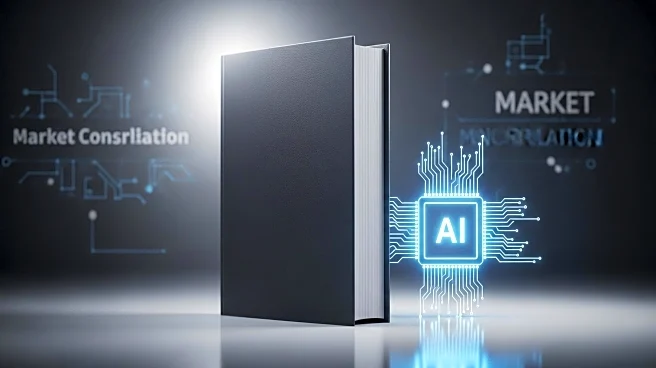What is the story about?
What's Happening?
The global publishing industry is undergoing significant changes, driven by technological advancements and market consolidation. The rise of artificial intelligence (AI) in publishing is seen as both a threat and an opportunity, with concerns about AI-generated content potentially flooding the market and impacting copyright laws. Additionally, the industry is experiencing a consolidation trend, where large publishers are acquiring smaller companies to expand their market share. This shift is affecting all sectors within publishing, including literary agencies, which are becoming more corporate. The growth of e-commerce in print, ebook, and digital audio is also reshaping the value chain, offering publishers new opportunities to reach global audiences without traditional infrastructure.
Why It's Important?
These developments have profound implications for the publishing industry. The integration of AI could lead to a reevaluation of copyright laws and the role of human authorship in literature. Market consolidation may limit diversity in publishing, as larger companies dominate the market, potentially stifling innovation from smaller publishers. The shift towards digital and e-commerce platforms offers publishers the chance to reach wider audiences, but also raises questions about the sustainability of traditional publishing models. The move towards open access in academic publishing challenges the notion of paid content, potentially altering funding models and the quality of scholarly research.
What's Next?
The publishing industry will likely continue to adapt to these changes, with stakeholders exploring new business models and strategies to leverage AI and digital platforms. Publishers may need to address ethical and legal concerns related to AI-generated content and copyright. The trend of market consolidation could lead to further acquisitions, impacting competition and innovation. As open access becomes more prevalent, publishers will need to find ways to balance free access with financial sustainability. The industry will also need to consider the implications of these changes on authors and literary agents, as traditional roles evolve.
Beyond the Headlines
The transformation of the publishing industry raises broader questions about the future of literature and the role of technology in creative fields. The ethical implications of AI in publishing, such as the potential loss of human creativity and originality, are significant. The consolidation trend may lead to a homogenization of content, reducing the diversity of voices and perspectives in literature. The shift towards digital platforms and open access challenges traditional notions of ownership and value in publishing, prompting a reevaluation of how content is produced, distributed, and consumed.
















